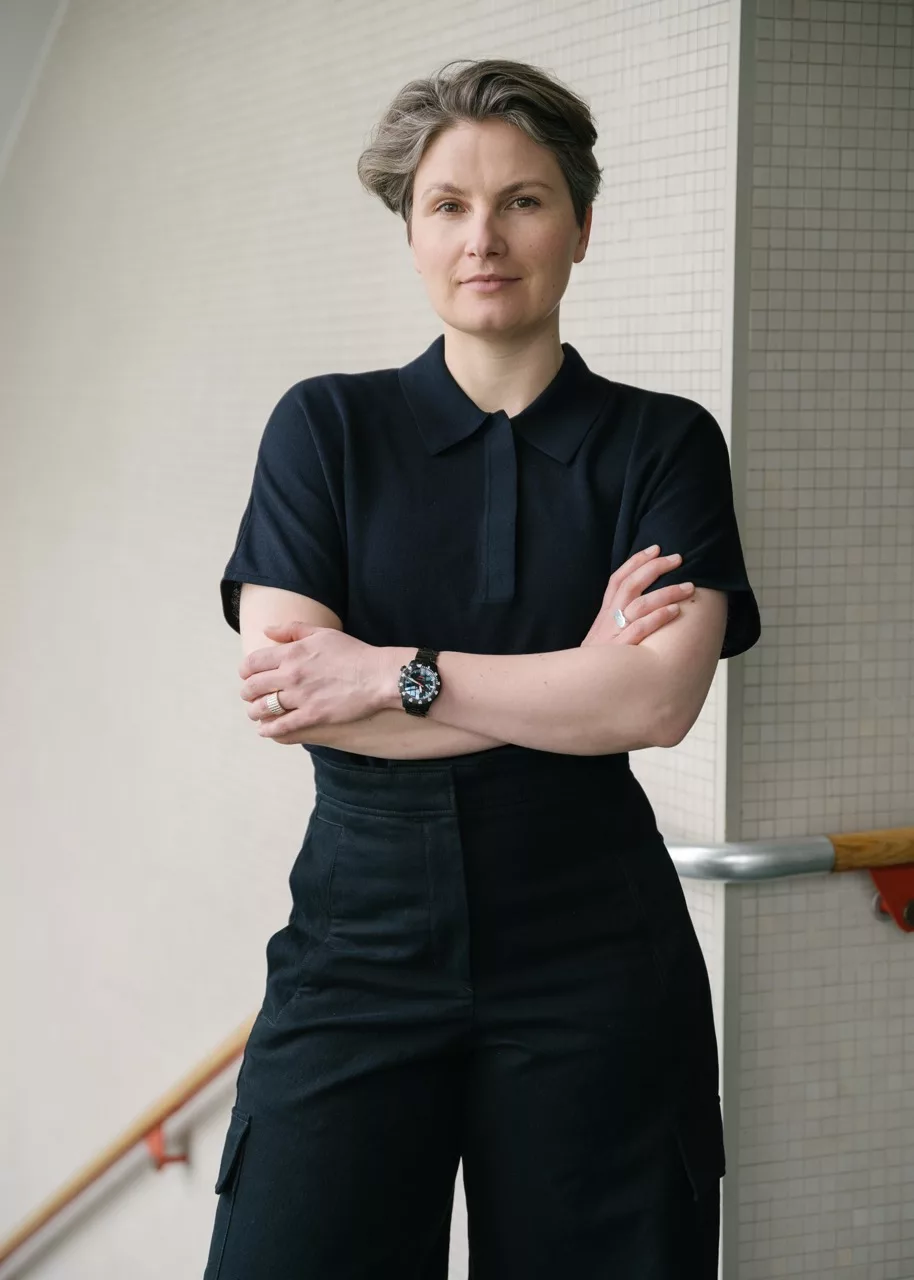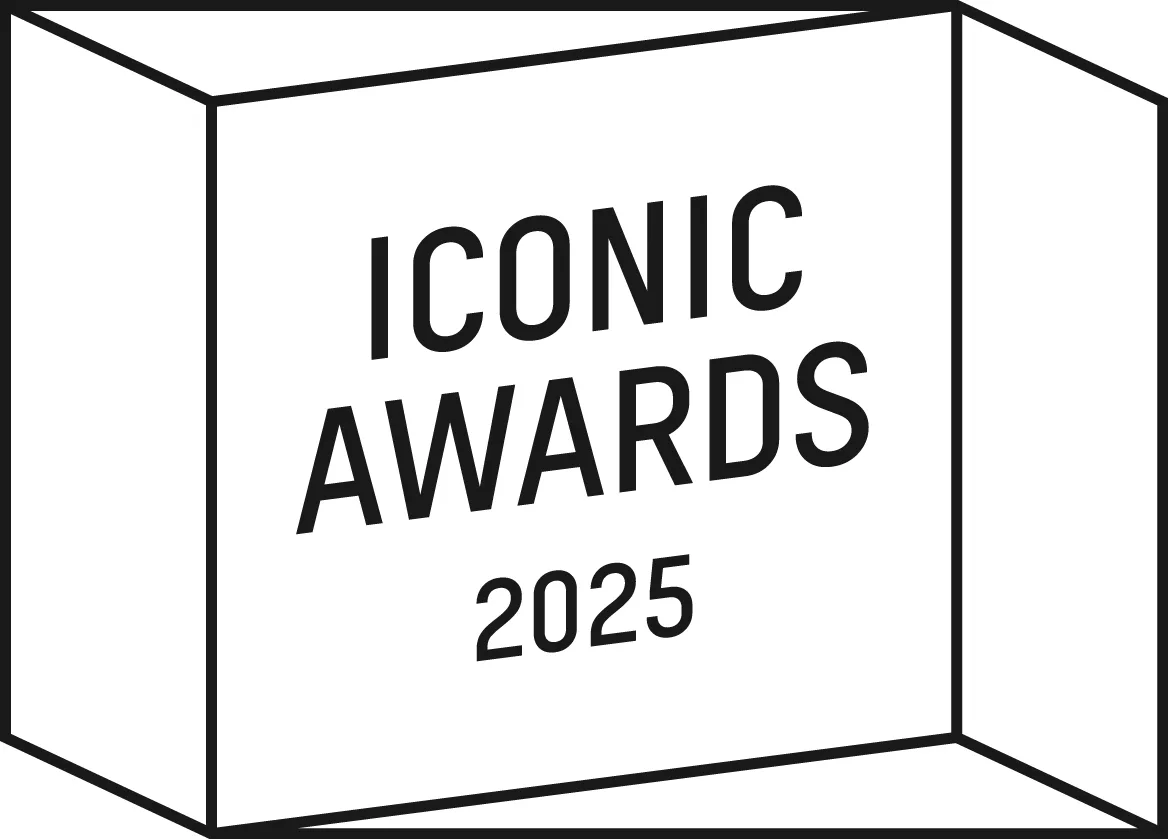Sofia Ceylan, Katharina Neubauer and Annabelle von Reutern are the architects behind TOMAS, a forward-thinking firm committed to the highest standards. TOMAS places a strong emphasis on reusing and recycling existing building materials and structures, striving to create architecture that is ecologically and economically sustainable while also building a more equitable world. A portrait.
by Florian Heilmeyer

TOMAS is no ordinary architecture firm. The team describes itself as a “socially responsible architecture enterprise”, which aims to contribute to a “social and just society” through regenerative and circular building. Their central tool: the reactivation of empty buildings. They believe this is the most powerful lever for the urgently needed transformation of the construction industry towards greater sustainability and ecology. In short, an end to demolition and new construction – but TOMAS goes even further. They are equally committed to socially just, feminist and fundamentally participatory and emancipatory building practices at all levels. They deliberately set the bar high. But who is behind TOMAS? A group of idealistic revolutionaries?

Tomas: Three Women, One Idea
A look behind the scenes reveals that behind the all-caps male name there are three women – Sofia Ceylan, Katharina Neubauer and Annabelle von Reutern. They met while studying architecture at RWTH Aachen University, where they shared a workspace for a time. After completing their bachelor’s degrees, all three moved to Berlin – albeit at different times – to continue their studies at the Technische Universität. After completing their Masters, the idea of setting up a joint practice began to take shape, although at first they lacked confidence and experience. Initially, they followed different career paths: Ceylan worked at Kim Nalleweg Architekten, Neubauer at Max Dudler, and von Reutern gained experience in several Cologne offices before spending three years at the start-up Concular, which specialises in circular construction and sustainable property management.
In 2024, they met again during the closing weekend of the International Architecture Biennale in Venice – a pivotal moment. All three were looking for new perspectives and revived the idea of setting up a joint practice. “It is a great advantage,” says Annabelle von Reutern today in her Berlin office, “that each of us has had ten years of professional experience in different contexts since graduating. Each of us has been able to develop individually – and now TOMAS benefits from this experience, the networks they have built up and their shared, clear vision of what they want to achieve and which mechanisms of the architecture industry they consciously want to avoid.
Tomas Rethinks Architecture
“Conventional” architectural practices often limit themselves to the role of service provider for investors. TOMAS wants more: they want to take an active role – at every stage of a project. Investment, planning, operation and sale are all part of their approach, as is a consistent focus on reactivating vacant properties. “We identify undervalued properties and develop utilisation concepts. We are project developers and portfolio managers at the same time,” they explain. In short: “TOMAS does it all – within the limits of our planet.”
When it comes to working with existing buildings, Ceylan, Neubauer and von Reutern see a major gap within the traditional real estate industry – or more accurately, a lack of imagination about what a building can be. “We want to shine a spotlight on buildings that many dismiss as worthless,” they say. Labeled as “junk properties” that, even when demolished, only seem to bring costs and headaches. “We are particularly interested in buildings from the 1970s, 1980s and 1990s – empty department stores, railway stations and churches. Properties that others call eyesores are the ones we love the most”. For TOMAS, it’s about more than just finding new uses. Von Reutern puts it simply: “Without a revolution in the construction industry, the climate revolution so often promised by politicians will not succeed.” They advocate a property industry based on the sustainable reuse of buildings, materials and components. This is what the name TOMAS stands for – an acronym for “Transformation of Material and Space”.


More Than Just a Studio
Why the slightly awkward term “architectural enterprise”? Annabelle von Reutern smiles – but insists it fits. “We want to combine a wide range of different activities in the field of architecture: planning, consulting and education are our main pillars. But project development, association and lobby work, events, crowdfunding and activism in all its forms are also part of it.
Here too, having built up their own networks over the years pays off. Extra-professional involvement has always been part of their identity: von Reutern is active in the Verein für Bauen im Bestand, Ceylan in the Verein für Nachhaltigkeitsmanagement im Bauwesen and Neubauer in the Architekten-Initiative Nordrhein-Westfalen. The growing public profile of the partners may also explain why the practice has already attracted considerable attention, even though it has not yet completed a project.
‘We are particularly interested in buildings from the 1970s, 1980s and 1990s – empty department stores, railway stations and churches. Properties that others call eyesores are the ones we love the most.’
– Annabelle von Reutern, architect and founder of TOMAS
First Projects: Conservation vs. Demolition
Using only 100% ecological natural building materials, TOMAS is currently converting a turn-of-the-century apartment in Berlin into a barrier-free family home after years of use as an artist’s studio, depot and micro-apartment. In Wolfsruh, north of Berlin, they plan to renovate a three-sided farmstead with stable and barn, preserving as much of the existing structure as possible. And in Celle, they entered a competition to convert an empty Karstadt department store. Their proposal: a server farm that would use the existing structure and benefit from efficient waste heat recovery due to its central urban location – a statement against the prevailing practice of demolishing large buildings in the city centre and building new container-like structures on the outskirts. Their concept received an honourable mention. With projects like this, TOMAS is setting clear agendas, criticising existing processes – and opening up new perspectives for the future of construction.

Mintrop Female-Focused
Perhaps their current project “Mintrop Female-Focused” best embodies the many ideas of TOMAS. In 2024, TOMAS bought a block of flats in Essen and is now renovating it in a careful, sustainable and minimally invasive way in cooperation with local craftsmen. The aim of the various small interventions is to create a ‘patchwork’ modernisation that deliberately retains the existing structure and preserves traces of the previous owners. The house’s orchard and vegetable garden will also be used as a communal garden, as was common in the Ruhr area. Once renovated, the ‘women’s rental’ will be specifically targeted at women with children, providing a safe, community-oriented environment for various patchwork family models.


Tomas: Standing up to Inequality
Which begs the question: with all these ideals, why choose a conventionally masculine name like “TOMAS”? Annabelle von Reutern laughs – she has answered this question many times. “Tomas is a name that signals success,” she says with a smile. “The AllBright Foundation found out in a study that there are more men named Thomas on the boards of German DAX companies than there are women. Then there’s the so-called Thomas cycle, which means that people tend to appoint others like themselves. A Thomas is likely to hire another Thomas.
The fact that the name of her practice subtly highlights this systemic injustice only reinforced her decision. Issues such as gender equality, climate change or construction transformation played little or no role during their studies. Today, it is these very issues that define their professional practice.
Architecture as a Catalyst for Social Change
In this sense, the three founders of TOMAS can be considered revolutionaries. They want to set new accents in a profession that is undergoing dramatic change. The more they looked into patriarchy and capitalism, von Reutern says, the angrier she became. Today, she sees that anger as her driving force.
“I don’t want to be against something, I want to be for something,” she says. For a more socially and ecologically just world, where a diverse, democratic society has the last word. With the tools of architecture, TOMAS wants to contribute to this vision.

Annabelle von Reutern is an architect, lecturer and expert in circular construction. Von Reutern is a member of Architects for the Future, an advisory board member of the Association for Building in Existing Contexts and an associate member of the Association of German Architects (BDA). In 2024, she and two colleagues founded the socially responsible architecture firm TOMAS – Transformation of Material and Space. She is also one of the jurors for this year’s ICONIC AWARDS.


About the ICONIC AWARDS 2025
More visibility, more opportunities – the new ICONIC AWARDS provide a stage for tomorrow’s ideas and projects. They open up networking and business opportunities and pave the way to new markets. They are aimed at architects, interior designers, designers and companies who are shaping the future with visionary projects, innovative products and sustainable concepts.
Submission deadline: 16 May 2025

About the Author
Florian Heilmeyer, born 1974, lives and works on the move, but mainly in Berlin. He studied architecture in Berlin and Rotterdam and published his first texts during his studies. Since then he has worked as a critic, journalist, editor, consultant and curator in the fields of architecture, society and the city. He writes for the specialist and daily press worldwide, is the editor and co-editor of numerous specialist books and has been involved in numerous exhibitions, including twice in the German contribution to the Architecture Biennale in Venice. He is currently accompanying Gerkan Marg and Partners’ ‘Umbau’ exhibition on its world tour.
Share on Social Media



